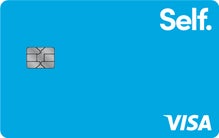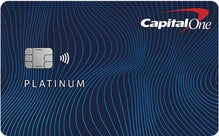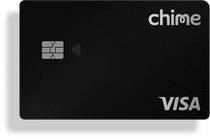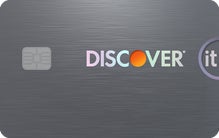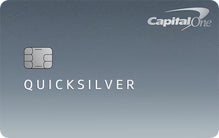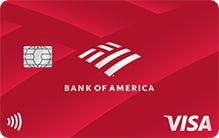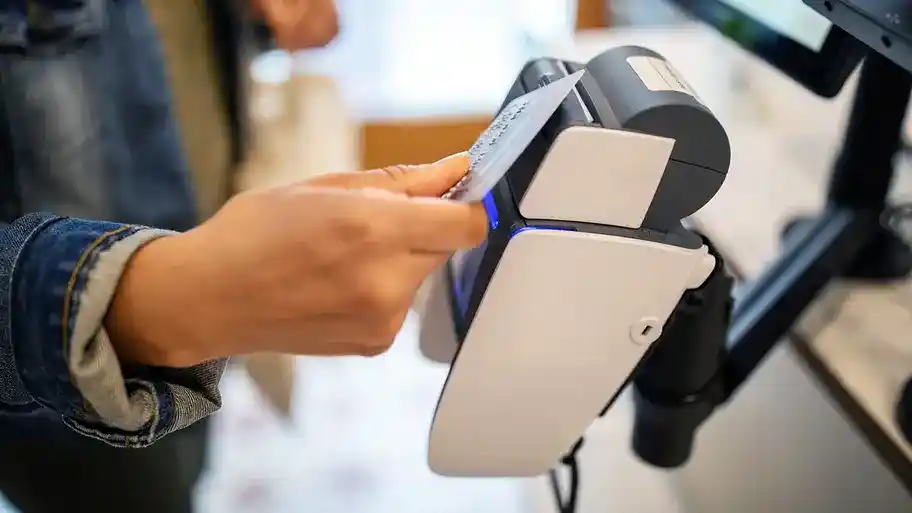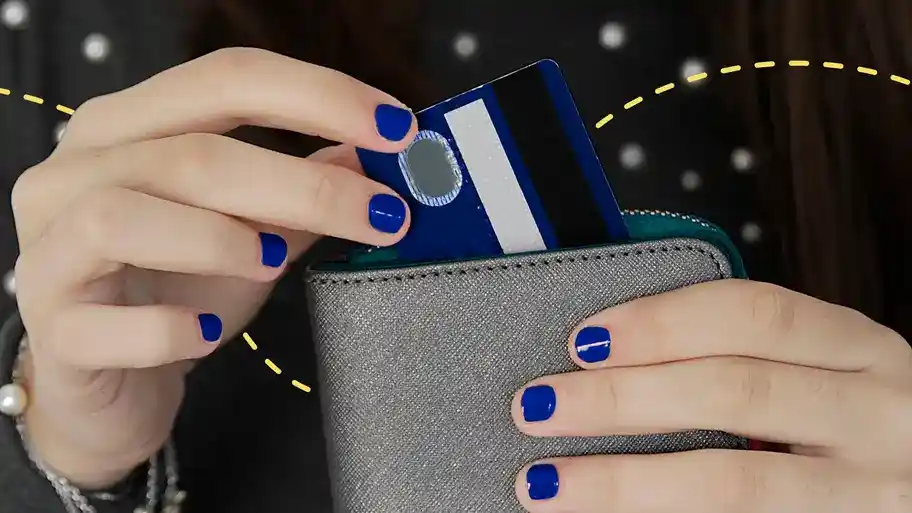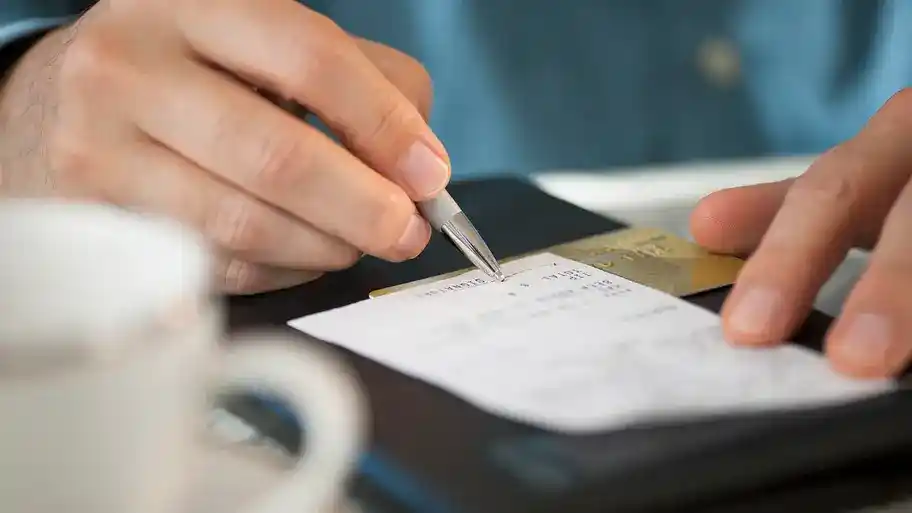Advertiser Disclosure
Bankrate.com is an independent, advertising-supported publisher and comparison service. Our websites may earn compensation when a customer clicks on a link, when an application is approved, or when an account is opened. Therefore, this compensation may impact what products appear and how, where, and in what order they appear within listing categories, except where prohibited by law for our mortgage, home equity and other home lending products. Other factors, such as our proprietary website rules and whether a product is offered in your area or at your self-selected credit score range, can also impact how and where products appear on this site. While we strive to provide a wide range of offers, Bankrate does not include information about every financial or credit product or service.
Best secured credit cards of February 2026
- • Cash back credit cards
- • Business credit cards
- • Credit cards
- • Building credit
- • Credit cards
- • Rewards credit cards
- • Credit cards
- • Building credit
- • Credit cards
- • Rewards credit cards
Advertiser Disclosure: Bankrate’s editorial team chooses and recommends the credit cards on this page. Our websites may earn compensation when a customer clicks on a link, when an application is approved, or when an account is opened. However, our recommendations and card ratings are produced independently without influence by advertising partnerships with issuers.
- Self - Credit Builder Account with Secured Visa® Credit Card: Best for building a credit mix
- Capital One Platinum Secured Credit Card: Best for building credit
- Chime Credit Builder Secured Visa® Credit Card: Best for flexible deposit
- Discover it® Secured Credit Card: Best welcome offer
- Capital One Quicksilver Secured Cash Rewards Credit Card: Best starter rewards card
- Firstcard® Secured Credit Builder Card with Cashback: Best for no credit check
- First Progress Platinum Prestige Mastercard® Secured Credit Card: Best for low interest
- OpenSky® Secured Visa® Credit Card: Best card for after bankruptcy
- Bank of America® Customized Cash Rewards Secured Credit Card: Best for cash back
How we make money
You have money questions. Bankrate has answers. Our experts have been helping you master your money for over four decades. We continually strive to provide consumers with the expert advice and tools needed to succeed throughout life’s financial journey.
Bankrate follows a strict editorial policy, so you can trust that our content is honest and accurate. Our award-winning editors and reporters create honest and accurate content to help you make the right financial decisions. The content created by our editorial staff is objective, factual, and not influenced by our advertisers.
We’re transparent about how we are able to bring quality content, competitive rates, and useful tools to you by explaining how we make money.
Bankrate.com is an independent, advertising-supported publisher and comparison service. Our websites may earn compensation when a customer clicks on a link, when an application is approved, or when an account is opened. Therefore, this compensation may impact what products appear and how, where, and in what order they appear within listing categories, except where prohibited by law for our mortgage, home equity and other home lending products. Other factors, such as our proprietary website rules and whether a product is offered in your area or at your self-selected credit score range, can also impact how and where products appear on this site. While we strive to provide a wide range of offers, Bankrate does not include information about every financial or credit product or service.
Bankrate has partnerships with issuers including, but not limited to, American Express, Bank of America, Capital One, Chase, Citi and Discover.
Filter by
Showing 8 results
Best for building a credit mix
Regular APR
27.49% APR Variable
Annual fee
$0 annual fee for the first year only, $25 annual fee thereafter.
Why you'll like this: It helps you build credit and save money with monthly payments into a savings account that secures a credit limit on the accompanying secured credit card.
What you should know
Alternative: If you don’t want to open a Credit Builder Account or put down a $100 security deposit, consider the Chime Credit Builder Secured Visa® Credit Card, which uses your connected Chime checking account to secure your limit.
- You can use the Credit Builder Account to open the card if you can’t pay a minimum $100 for the card’s security deposit.
- Having both loan and card payments on your credit report improves your credit mix, which makes up 10 percent of your FICO credit score.
- The interest on the credit-builder loan and ongoing annual fee on the card could make this card costlier than traditional secured cards.
- It doesn’t provide ongoing rewards or a welcome offer to help offset its recurring costs.
Card Details
$0 annual fee for the first year only, $25 annual fee thereafter. Variable APR of 27.49%. Offer valid for new customers only.
With no credit check or prior credit required, anyone can start building credit. Fund your card with a minimum security deposit of $100 and use it anywhere Visa® is accepted in the U.S. Build credit by making on-time payments and maintaining a low credit utilization ratio. Every on-time payment helps build credit history.
If you don’t have the $100 security deposit today, consider a Credit Builder Account2 starting at $25 a month4. Consistent, on-time payments help you build credit and build savings to secure The secured Self Visa® Credit Card3.
1The secured Self Visa® Credit Card is issued by Lead Bank, Sunrise Banks, N.A., or First Century Bank, N.A., each Member FDIC.
2Credit Builder Accounts & Certificates of Deposit made/held by Lead Bank, Sunrise Banks, N.A., First Century Bank, N.A., each Member FDIC. Subject to credit approval.
3Qualification for the secured Self Visa® Credit Card is based on meeting eligibility requirements, including income and expense requirements and establishment of security interest. Criteria Subject to change.
4$25/mo, 24 mos, 15.92% APR; $35/mo, 24 mos, 15.69% APR; $48/mo, 24 mos, 15.51% APR; $150/mo, 24 mos, 15.82% APR. See self.inc/pricing
Best for building credit
Intro offer
N/A
Annual fee
$0
Regular APR
28.99% (Variable)
Why you'll like this: It offers a simple, low-cost way to build credit, and Capital One offers a great mix of rewards cards should you want to upgrade in the future.
What you should know
Alternative: Consider the First Progress Platinum Prestige Mastercard® Secured Credit Card. Although it doesn’t offer rewards, it has a lower variable APR that could cost less if you carry a balance.
- Capital One automatically reviews your account for a credit line increase after six months of on-time payments.
- You have the opportunity to earn back your deposit and upgrade to an unsecured card with responsible use.
- The card's variable APR is high when compared to similar cards.
- It may not offer as much long-term value as competing secured cards that earn rewards.
Card Details
No annual or hidden fees. See if you're approved in seconds
Building your credit? Using the Capital One Platinum Secured card responsibly could help
Put down a refundable security deposit starting at $49 to get at least a $200 initial credit line
You could earn back your security deposit as a statement credit when you use your card responsibly, like making payments on time
Be automatically considered for a higher credit line in as little as 6 months with no additional deposit needed
Enjoy peace of mind with $0 Fraud Liability so that you won't be responsible for unauthorized charges
Monitor your credit score with CreditWise from Capital One. It's free for everyone
Get access to your account 24 hours a day, 7 days a week with online banking to access your account from your desktop or smartphone, with Capital One's mobile app
Top rated mobile app
Best for flexible deposit
Regular APR
N/A
Annual fee
None
Why you'll like this: It helps establish or rebuild credit with no annual fee, no credit score required for approval and an option to upgrade to an unsecured card over time.
Reward Details
- 1.5%Earn 1.5% cash back² on rotating categories with Chime+ status.³
What you should know
Alternative: The Secured Self Visa Credit Card works similarly to this card. The added plus with the Secured Self Visa Credit Card is that it pairs a credit-builder loan with a credit card to improve cardholders’ credit mix when used responsibly.
- This card reports to all three credit bureaus, which may help you build credit.
- There’s no credit check required, so you won’t need to worry about putting your score at risk by applying.
- The card’s limit is dependent on how much you have in the account, so it’s less flexible in emergencies.
- There’s no clear path to upgrading to a better card once you build your credit.
Card Details
A Chime® Checking Account is required to apply for the secured Chime Visa® Credit Card.
Credit building, stress-free.¹
Earn 1.5% cash back² on rotating categories with Chime+ status.³
SpotMe® on Credit.⁴
No interest⁵, no credit check.
Over 47,000 fee-free ATMs.⁶
Fee-free in-network cash deposits.⁷
¹On-time payment history may have a positive impact on your credit score. Late payment may negatively impact your credit score. Results may vary.
²With a qualifying direct deposit, earn 1.5% cash back on eligible secured Chime Visa® Credit Card purchases.
³To be eligible for Chime+™ status you must receive a qualifying direct deposit to your Chime Checking Account in the preceding 34 days. Certain products marketed as Chime+ benefits have additional eligibility requirements. While some Chime+ benefits may have associated fees, none of these fees are mandatory to access Chime+ benefits or to maintain Chime+ status. See Chime+ Terms and Conditions for details. CHIME+ is a Trademark of Chime Financial, Inc.
⁴SpotMe® eligibility requirements and limits apply. Overdraft only applies to credit card transactions and cash withdrawals. Limits range from $20-$200.
⁵Out-of-network ATM withdrawal and over the counter advance fees may apply.
⁶Out-of-network ATM withdrawal and over the counter advance fees may apply except at MoneyPass ATMs in a 7-Eleven, or any Allpoint or Visa Plus Alliance ATM.
⁷Once the retailer accepts your cash, the funds will be transferred to your Chime account. Cash deposit fees may apply if using a retailer other than Walgreens and Duane Reade.
The secured Chime Visa® Credit Card is issued by The Bancorp Bank, N.A. or Stride Bank, N.A.. and may be used everywhere Visa credit cards are accepted.
Best card with a welcome offer
Regular APR
26.49% Variable APR
Annual fee
$0
Why you'll like this: It allows you to build credit while earning cash back at gas stations and restaurants.
Reward Details
- 2%Earn 2% cash back at Gas Stations and Restaurants on up to $1,000 in combined purchases each quarter, automatically.
- 1%Earn unlimited 1% cash back on all other purchases.
What you should know
Alternative: The Capital One Quicksilver Secured doesn’t cap your rewards, so you may be able to earn more with it while you build credit than you would with the Discover it® Secured Credit Card.
- Discover automatically reviews your account and may upgrade you to an unsecured card starting at seven months of responsible card use.
- This card is light on fees and forgiving with your first late payment (up to $41 after).
- If you have debt, it may be better to pay down some of your balance than put up a deposit on this card and take advantage of its intro APR offer.
- Though this card comes at a low cost overall, its variable APR falls short of the rate available on a few other secured cards.
Card Details
No credit score required to apply. No Annual Fee.
Your secured credit card requires a refundable security deposit, and your credit line will equal your deposit amount, starting at $200. Bank information must be provided when submitting your deposit.
Automatic reviews starting at 7 months to see if we can transition you to an unsecured line of credit and return your deposit.
Earn 2% cash back at Gas Stations and Restaurants on up to $1,000 in combined purchases each quarter, automatically. You'll still earn unlimited 1% cash back on all other purchases.
Intro Offer: Unlimited Cashback Match for all new cardmembers—only from Discover. Discover will automatically match all the cash back you’ve earned at the end of your first year! There’s no minimum spending or maximum rewards.
Get an alert if we find your Social Security number on the dark web. Activate for free.
Terms and conditions apply.
Best starter rewards card
Regular APR
28.99% (Variable)
Annual fee
$0
Why you'll like this: It offers a solid flat cash back rate and a chance at a credit limit increase in as little as six months if you use the card responsibly.
Reward Details
- 5%Earn unlimited 5% cash back on hotels, vacation rentals and rental cars booked through Capital One Travel
- 1.5%Earn unlimited 1.5% cash back on every purchase, every day
What you should know
Alternative: The Capital One Platinum Secured Credit Card doesn’t earn rewards like the Quicksilver Secured, but you could get a $200 starting credit limit with a security deposit starting as low as $49 (Min. security deposit will be $49, $99 or $200), which is more affordable.
- This is a low-maintenance card with limited fees and streamlined features, including the option to automatically redeem rewards.
- You can earn your security deposit back with responsible card use, so you don't have to close the account to get your deposit back.
- The variable APR is high, even for a credit-building card.
- If you start with a credit limit of $200 (based on your deposit), then it might be harder to earn rewards and keep your credit utilization in check.
Card Details
No annual or hidden fees, and you can earn unlimited 1.5% cash back on every purchase, every day. See if you're approved in seconds
Put down a refundable $200 security deposit to get at least a $200 initial credit line
Building your credit? Using a card like this responsibly could help
Enjoy peace of mind with $0 Fraud Liability so that you won't be responsible for unauthorized charges
You could earn back your security deposit as a statement credit when you use your card responsibly, like making payments on time
Be automatically considered for a higher credit line in as little as 6 months with no additional deposit needed
Earn unlimited 5% cash back on hotels, vacation rentals and rental cars booked through Capital One Travel
Monitor your credit score with CreditWise from Capital One. It's free for everyone
Top rated mobile app
Best for low interest
Regular APR
13.49% (V)
Annual fee
$49
Why you'll like this: Your security deposit determines your credit limit, allowing you to establish credit and potentially receive lower interest rates than with many unsecured cards.
Reward Details
- Up To 10%Up To 10% Cash Back on Purchases + 1% on Payments^^
What you should know
Alternative: If you’re set on earning rewards with a secured credit card, the Capital One Quicksilver Secured could get you more cash back.
- You may be able to increase your security deposit (and credit limit) to up to $5,000 over time with approval, which could improve your credit utilization ratio and credit score.
- Its flat cash back rate incentivizes timely payments and makes it easy to save on everyday spending while you focus on building credit.
- It doesn’t offer any special perks or boosted rewards rate to offset its annual fee, limiting its long-term value.
- The card’s annual fee is on the high side, especially for a secured card that offers such a low rewards rate.
Card Details
Turn Your Tax Refund into a Credit Building Opportunity in 2026!¹ Make Everyday Purchases = Get Rewarded. Make Payments = Get Rewarded.^^
Now offering Up To 10% Cash Back at select merchants with First Progress! Plus, 1% back when you make payments!^^
Apply with no impact to your credit!*
Build your credit history across 3 major credit reporting agencies: Equifax, Experian and TransUnion.¹
All credit types welcome to apply!
¹Cardholders who keep their balance low and pay their credit card bill on time every month typically do see an increase in their credit score.
*We may pull a soft inquiry of your credit. Soft inquiries do not impact your credit score.
^^The 10% cash back rate is available only at a limited number of participating merchants. Offer percentages vary by merchant and are subject to change. See First Progress Rewards Program Terms & Conditions for details.
*See Important Disclosures for complete offer details
Best for after bankruptcy
Regular APR
23.89% (variable)
Annual fee
$35
Why you'll like this: Since it doesn’t require a credit check, it’s one of the most accessible options for people without credit histories or poor credit.
Reward Details
- Up to 10%Earn up to 10% cash back on everyday purchases
What you should know
Alternative: The Chime Credit Builder Secured Visa also doesn’t require a credit check and may be a lower-risk way to build credit after bankruptcy because it isn’t a true credit card.
- Its potential credit limit beats out the $2,000 to $2,500 maximum limit typically available on secured cards.
- Its APR is much lower than the rate you’ll find on many other secured cards.
- While its $35 annual fee is reasonable for a credit-building card, this card doesn’t offer a rewards program to make up for some of its cost.
- Unlike other issuers, opensky doesn’t have an unsecured credit card that you can upgrade to after improving your score.
Card Details
Earn up to 10% cash back on everyday purchases
No credit check required – 89% approval rate with zero credit risk to apply!
Boost your credit score fast—2 out of 3 opensky® cardholders see an average increase of 47 points after 6 months
Track your progress with free access to your FICO® score in our mobile app
Build your credit history with reporting to all three major credit bureaus: Experian, Equifax, and TransUnion
Seamless payments—add your card to Apple Pay, Google Pay, and Samsung Pay
Start with just $200—secure your credit line with a refundable deposit
Fast and easy application—apply in minutes with our mobile-first experience
Flexible payment options—pick a due date that works for you
More time to fund—spread your security deposit over 60 days with layaway
Join 1.6 million+ cardholders who have used opensky® to build better credit!
Intro offer
N/A
Rewards Rate
1% - 3%
Annual fee
None
Regular APR
27.74% Variable APR on purchases and balance transfers
Why you'll like this: It’s a no-annual-fee secured credit card that comes with tangible rewards.
Reward Details
- 3%3% cash back in the category of your choice: gas, online shopping, dining, travel, drug stores, or home improvement/furnishings
- 2%2% cash back at grocery stores and wholesale clubs
- 1%Unlimited 1% cash back on all other purchases
What you should know
Alternative: The Discover it® Secured Credit Card also offers cash back, albeit at a lower rate than the Bank of America secured card. However, the Discover card matches all the cash back you’ve earned at the end of your first year. Plus, you get automatic reviews after seven months to see if you can graduate to an unsecured Discover credit card.
- Earn generous cash back rewards
- Gain free access to FICO score to keep track of credit building
- The card's security deposit is only $200
- No automatic credit limit increases
- No chance to upgrade to unsecured Bank of America credit cards
- Credit check required
Remove a card to add another to compare
Remove a card to add another to compare
Compare Bankrate's top secured credit cards
| Card Name | Best For | Annual fee | Bankrate Review Score |
|---|---|---|---|
|
Building a credit mix |
|
3.1 / 5 Our writers, editors and industry experts score credit cards based on a variety of factors including card features, bonus offers and independent research. Credit card issuers have no say or influence on how we rate cards.
Apply now
on Self's secure site
|
|
|
Building credit |
|
4.1 / 5 Our writers, editors and industry experts score credit cards based on a variety of factors including card features, bonus offers and independent research. Credit card issuers have no say or influence on how we rate cards.
Apply now
on Capital One's secure site
|
|
|
Flexible deposit |
|
4.2 / 5 Our writers, editors and industry experts score credit cards based on a variety of factors including card features, bonus offers and independent research. Credit card issuers have no say or influence on how we rate cards.
Apply now
on Chime's secure site
|
|
|
Welcome offer |
|
5.0 / 5 Our writers, editors and industry experts score credit cards based on a variety of factors including card features, bonus offers and independent research. Credit card issuers have no say or influence on how we rate cards.
Apply now
on Discover's secure site
|
|
|
Starter rewards card |
|
4.2 / 5 Our writers, editors and industry experts score credit cards based on a variety of factors including card features, bonus offers and independent research. Credit card issuers have no say or influence on how we rate cards.
Apply now
on Capital One's secure site
|
|
|
No credit check |
|
|
|
|
Low interest |
|
4.0 / 5 Our writers, editors and industry experts score credit cards based on a variety of factors including card features, bonus offers and independent research. Credit card issuers have no say or influence on how we rate cards.
Apply now
on First Progress's secure site
|
|
|
Card for after bankruptcy |
|
3.1 / 5 Our writers, editors and industry experts score credit cards based on a variety of factors including card features, bonus offers and independent research. Credit card issuers have no say or influence on how we rate cards.
Apply now
on opensky's secure site
|
|
|
Cash back |
|
|
Researching the best secured credit cards
We thoroughly rate and research the best secured cards based on key criteria to help you make confident decisions when choosing your next credit card. Learn more about our methodology below.
What is a secured credit card?
A secured credit card is similar to an unsecured one, except it has a refundable security deposit as collateral. When you open your account, you pay this deposit and typically it acts as the card’s credit limit. The issuer may refund your deposit and those with a family of credit cards may upgrade you to an unsecured version after showing responsible credit use.
I've personally used two secured cards featured on Bankrate’s list — the Capital One Platinum Secured Credit Card and The secured Self Visa® Credit Card — to help build up my credit score (with responsible use) after several attempts to get my financial house in order. Secured cards are a logical option if you're trying to establish or rebuild your credit score.
Want to learn more? Read our full guide on how secured credit cards work.
Secured vs. unsecured credit cards
Credit builders often start with a secured credit card and then graduate to an unsecured credit card with better rewards rates and lower fees as their scores improve.
While the biggest cost difference between secured and unsecured cards is the security deposit, there are also other fees and features to keep in mind.
| Factors | Secured card | Unsecured for bad credit |
|---|---|---|
| Minimum credit score | No credit history or bad credit (below 580 FICO) | Bad credit (below 580 FICO) |
| Typical minimum security deposit | $50–$300 | $0 |
| Builds credit? | Yes | Yes |
| Annual fee | Sometimes (typically around $49, but many no-annual-fee options available) | Commonly (can be $99 or more, and no-annual-fee options are harder to find) |
| Rewards | Rarely | Sometimes |
Pros and cons of secured credit cards
Pros
-
Access to credit: A secured card is handy when a merchant doesn’t accept cash, like for a hotel reservation or a rental car.
-
Lighter application requirements: People with limited or low credit scores typically find application requirements for secured cards more forgiving and accessible. Some applications don't even require a credit check.
-
Accountability: Because you can typically spend only up to the amount of your security deposit, a secured card can help you control your spending.
-
Refundable deposits: You can often get your deposit back after demonstrating responsible card use.
Cons
-
Extra fees: Some secured cards may charge fees for opening the account, which can reduce the amount of available credit you have left to use.
-
High APRs: Many secured cards charge higher-than-average APRs, which can be expensive if you don’t pay your credit card bill on time and in full.
-
Limited features: Secured cards tend to focus on credit-building and typically lack features like welcome offers, intro APR offers or other perks that add long-term value.
-
Lower limits: Your card’s credit limit is based on your security deposit, and secured cards typically have a low maximum deposit — so you won't have much spending flexibility.
What makes a great secured credit card
A great secured credit card can help you build or rebuild credit when used responsibly with features like solid credit-building tools and a decent APR. Working on your credit will get you closer to qualifying for cards with better features and benefits. Once you're ready to apply, here’s what to consider when choosing a secured credit card:
-
When choosing a secured card, check the perks it offers that can help you improve your credit. For instance, the issuer should report card usage to at least one of the bureaus so that your good habits — on-time payments, paying in full, low utilization and more — don’t go unnoticed. Credit reports of good payment behavior to Equifax, Experian or TransUnion are essential for building or repairing credit.
A “great” example: The secured Self Visa Credit Card helps you build credit and save money with monthly payments that go into a savings account that serves as the credit limit on the accompanying secured credit card.
-
Your security deposit typically acts as your starting credit limit. Note the minimum and maximum security deposit requirements on the card: If the card's minimum deposit is too high, then it may not be the right choice for you. On the other hand, if the maximum deposit is too low for you to effectively use the credit limit to build your score, then you should look at other options.
For instance, the Capital One Quicksilver Secured Cash Rewards Credit Card and the Capital One Platinum Secured Credit Card only allow you to make a $200 deposit as your credit limit. The Self Visa Credit Card starts with a $100 deposit, although there’s also the 24-month Credit Builder Account loan with four options that allow you to make monthly payments that tie to your credit limit. Monthly payments range from $25 to $150. I personally chose the $150 option, which gave me the best of both worlds — a secured card with a higher-than-usual credit limit and a sweet deposit at the end of the account’s term, minus interest and fees. I used the proceeds of my loan — $3,069 — to book an international dream trip for spring 2026."
A “great” example: The opensky® Secured Visa® Credit Card allows you to put down a deposit of up to $3,000 — your credit limit — which allows you more room to keep your credit utilization low.
-
Many secured credit cards for bad credit charge higher-than-average interest rates — typically 25 percent or more. If you can avoid carrying a balance by paying your card in full every billing cycle, you don't have to worry about interest. However, if you tend to carry a balance, then look for cards that have reasonable APRs. Interest charges add to your balance and can eat into your credit limit.
A “great” example: The interest rate on the First Progress Platinum Prestige Mastercard Secured Credit Card is a low 13.99 percent — lower than most unsecured credit cards. Plus, you have the chance to increase your security deposit (and credit limit) to up to $5,000 over time, which can help keep your credit utilization ratio low when you have a low balance across your total available credit.
-
Though your primary focus should be on building credit, some secured credit cards offer rewards, mostly cash back, in popular categories including groceries and gas. If you can manage a card with rewards without overspending and going into debt, you might consider a secured card that offers rewards.
A “great” example: The Discover it Secured Credit Card starts with a welcome offer that automatically matches all the cash back you’ve earned at the end of your first year, with no minimum spending or maximum rewards. It offers 2 percent cash back at gas stations and restaurants on up to $1,000 in combined purchases each quarter; earn 1 percent cash back on all other purchases. While you shouldn't apply for a secured card just for the rewards, it could be a cherry on top with this card while you're building credit.
How does someone decide whether to choose a secured credit card versus other credit-building tools?

A secured credit card is a great option for people with little or no credit, people rebuilding their credit, and people who have enough money to cover the initial deposit, which typically ranges from $200 to $500. Secured credit cards often have low barriers to entry, which make them a great first step in establishing credit. Becoming an authorized user on someone else's account is another great way to build credit. However, it is very important to consider the potential implications it could have on the relationship if you do not or cannot make on time, in full payments, as this is likely to financially impact the primary cardholder. The advantage of so many credit building options is that you can find the path that works best for you.

A secured credit card is a great option for people with little or no credit, people rebuilding their credit, and people who have enough money to cover the initial deposit, which typically ranges from $200 to $500. Secured credit cards often have low barriers to entry, which make them a great first step in establishing credit. Becoming an authorized user on someone else's account is another great way to build credit. However, it is very important to consider the potential implications it could have on the relationship if you do not or cannot make on time, in full payments, as this is likely to financially impact the primary cardholder. The advantage of so many credit building options is that you can find the path that works best for you.
Think of a secured card like a learner’s permit for driving. Similar to taking the written test to get a learner’s permit and practicing driving with an instructor, you pay a security deposit to get the card and practice making and paying off purchases. Your credit limit is usually equivalent to the amount of your deposit, which makes it hard to rack up too much debt.You can also use tools like a credit-builder loan, Experian Boost and becoming an authorized user on a trusted person’s card to build your credit mix and improve your score more quickly. Just make sure you’re following the speed limit — not overspending — and obeying road signs — paying on time — so you don’t crash your credit!
Think of a secured card like a learner’s permit for driving. Similar to taking the written test to get a learner’s permit and practicing driving with an instructor, you pay a security deposit to get the card and practice making and paying off purchases. Your credit limit is usually equivalent to the amount of your deposit, which makes it hard to rack up too much debt.You can also use tools like a credit-builder loan, Experian Boost and becoming an authorized user on a trusted person’s card to build your credit mix and improve your score more quickly. Just make sure you’re following the speed limit — not overspending — and obeying road signs — paying on time — so you don’t crash your credit!
Tips for rebuilding credit with a secured credit card
While you’ll want to upgrade to an unsecured card as soon as possible, you can still use your time with your secured card to your advantage.
-
Take this time to practice good habits
Use your secured card as a tool to help build your credit. Keep your credit utilization ratio below 30 percent and go to AnnualCreditReport.com for a free copy of your credit report from the three major credit bureaus to check your progress. You should pay at least the minimum due every month, but paying off the entire balance is best to avoid interest charges. It takes time to increase your credit score, so be patient as you learn to use credit cards.
-
Submit a large security deposit
Putting down more money could result in a higher credit limit, making it easier to keep your credit utilization ratio in check. If you can only put down the required minimum, prioritize keeping your utilization low, since amounts owed on a card represent 30 percent of your score.
-
Upgrade to an unsecured card when possible
Once you’ve worked your way up to fair credit and beyond, start thinking about upgrading to an unsecured card that might offer better rewards and lower fees. If your secured card has maintenance or inactivity fees, it may be a good idea to close it and take the short-term hit on your credit score. Otherwise, there’s no harm in keeping it open for the occasional small purchase to add to the length of your credit history, since it accounts for 15 percent of your credit score.
-
Get your security deposit back
If you decide to close your secured card, make sure to get your security deposit back. The issuer may take 30 to 90 days to refund your deposit in the form of a statement credit or check.
What are some alternatives to a secured card?
Applying for a secured card is a simple and effective way to build up less-than-ideal credit, but it may not be your only option. If you struggle to qualify for a secured credit card, a few alternatives include:
Bankrate’s take: As you use a secured card to build credit, track your progress on your credit report. You can request a free copy of your credit report from each of the three credit bureaus every year.
Are secured cards guaranteed approval?
The simple answer for most — but not all — secured cards is yes; approval is guaranteed as long as you pay the deposit that becomes your credit limit. But things aren't that simple most of the time, so here are some things to consider before adding a secured credit card to your wallet.
See if the card issuer does a hard pull to check your credit score.
Ensure that the card's issuer reports to the three credit bureaus — Equifax, Experian and TransUnion.
Research how much an issuer requires for a deposit and annual fees, and check the APR.
See if an issuer allows you to upgrade to an unsecured credit card if you've used the secured card responsibly.
Secured credit card news & views
Americans are facing increased financial pressures, but the average credit score hasn’t moved much in response. The national average credit score currently stands at 715, according to Experian. But good credit scores might not necessarily mean that Americans aren’t struggling to keep up.
Nearly half of credit cardholders carry a balance from month to month, according to Bankrate’s 2025 Credit Card Debt Survey. And 53 percent of cardholders who carry a credit card balance have been doing so for at least a year. Effects of this include not being able to save for emergencies, donating to charities, becoming a homebuyer and more.
If you’re using a secured credit card to improve your credit score, it’s important to pay off your balance each month, since secured cards often have higher interest rates that make it harder to pay down debt. We also explored what Redditors from the r/CreditCards subreddit are saying about using secured cards. They shed light on the importance of trusting the process when building credit with a secured card and how to determine your security deposit.
One tried-and-true piece of advice: Be patient with your first card. You won’t see your credit-building efforts reflected in your score for at least six months, so don’t apply to more cards until your score is ready.
“I wouldn't rush to get more cards right now. Focus on building your credit and becoming eligible for non-secured cards. Then, you can go crazy with applications,” one user said in response to another asking if they should get a second secured card.*
It’s true — one secured card can help you build your credit with responsible use. However, adding another secured card to the mix only locks up more of your cash and provides you with a second card with a low credit limit, which doesn’t do much for your credit score. You’d be better off making an additional security deposit toward your first secured card instead of getting a second to increase your purchasing power.
That raises the question of how much should you deposit on a secured credit card. The answer depends on your financial situation and how you plan to use the card.
“I think the amount you put down for the security deposit depends on your place in life at the moment and how much you trust your own financial responsibility,” one Redditor said in a separate post regarding security deposits and higher limits.* “You may not need a super high limit and choose to put gas/minor purchases on it to rebuild credit, or use a low limit as a deterrent to overspending. Or you may use the card as a more daily driver option and require a higher limit to make your monthly purchases.”
Your security deposit is also likely the reason why it’s easier to get approved for a secured credit card. We analyzed our proprietary data to compare the approval rates for secured cards and unsecured cards that Bankrate readers applied for on our site in 2024.
According to our data, Bankrate users with bad credit and thin credit are 46 percent more likely to get approved for a secured credit card than they are to get approved for an unsecured card for bad credit.
While secured credit cards usually require a security deposit to back your credit limit, this extra requirement makes approval far more likely — and it’s good to remember that the deposit is refundable. As long as you can afford to put down at least $200 for the security deposit, you may have better chances of getting approved for a secured card than an unsecured card.
Another Redditor reported having a poor credit score eight months ago and decided to get the Capital One Platinum Secured card. “They just upgraded it to an unsecured [card] and refunded my original deposit. My score has jumped up 120 points since then,” they said. “Just make sure you pay it off every month before the statement is [due] and don’t carry a balance. If you do that, your credit will jump up in no time and they’ll start to increase your limit.”
*The quotes and citations included on this page have been verified by our editorial team and are accurate as of the posting date. Outlinked content may contain views and opinions that do not reflect the views and opinions of Bankrate.
Try it out: Bankrate’s CardMatch™ feature is an easy way to see if you prequalify for select cards within your credit range.
Frequently asked questions about secured credit cards
-
Your application for a secured credit card might be denied if you have serious problems with your credit history, such as bankruptcy. Fortunately, some credit cards don’t automatically disqualify you for having a bankruptcy on your credit report.
Learn more: What to do when your credit card application is denied
-
That depends on your finances and the minimum and maximum amounts allowed. If you don’t plan to use the card much and can pay your balance in full each month, just putting down the minimum security deposit could work.
-
You might be able to increase your credit limit after your initial security deposit by making an additional security deposit (though there may be a cap). Some secured cards will automatically review your account after a set time period and consider an increase in your credit limit with responsible card use. However, not all cards offer credit limit increases. Check with the issuer to see if an increase is possible and how.
How we assess the best secured cards
When evaluating the best secured credit cards, we consider a mix of factors, including how cards score in our proprietary card rating system and whether cards offer features that make it easy to build credit history while keeping costs low.
We analyzed over 50 of the most popular cards designed for people with a fair credit score and rated each based on its cost, APR, credit-building features and more to determine whether it belonged in this month’s roundup.
Here are some of the key factors that we considered:
Build credit, minimize fees
Secured cards run the gamut, from basic no-annual-fee cards to cash back cards to cards with sky-high fees and APRs. Our rating methodology for these cards focuses on two key factors: How easy a card makes it to build credit and the costs you’ll face along the way.
-
Cost 45.00%
-
Ease of building credit 25.00%
-
APR 10.00%
-
Perks 10.00%
-
Customer experience 10.00%
-
A credit-building card’s cost has a large influence on its overall score and our decision to include it in our best cards list. This is because cards in this category tend to be much pricier than traditional credit cards designed for people with a good or better credit score.
We compare a card’s total cost, including any annual fees, account activation fees, monthly fees and more against the total cost of other cards in the credit-building category and assign each card a score based on its affordability. We also factor rewards-earning potential into our assessment of a credit-building card’s total cost, subtracting expected earnings from the sum of its fees.
To get a sense of a credit-building card’s rewards-earning potential, we estimate its average annual rewards rate and average annual earnings based on the most popular spending categories (as covered in the latest Bureau of Labor Statistics consumer spending report).
However, we use a slightly lower spending assumption ($300 per month or $3,600 per year) to estimate average earnings, assuming credit-builders will start out with a lower credit limit, will want to keep credit utilization low and will focus primarily on small purchases they can easily pay off.
While low-cost credit-building cards will always be at a major advantage in our scoring system and will likely earn a higher spot on our best cards list, no-annual-fee credit-building cards can be hard to come by, especially if you’re looking for an unsecured card. With this in mind, we may include unsecured cards with high fees in our list if they offer other benefits for credit-builders, like a high starting credit limit or useful perks.
A card’s APR is also a major factor in its credit-building score. Each card’s average APR is compared against the average APR of other cards in the category, and the cards with lower-than-average APRs receive a higher rating.
Given the many costs students face — from textbooks to laptops — the presence of an introductory APR on purchases or balance transfers also plays a role in a student card’s score and its inclusion on our list.
Though high APRs are hard to avoid when you’re just starting out or working on your score, credit-builders and students should strive for as low an APR as possible since they’re likely to either be new to managing cards or trying to establish better financial habits and avoid falling into debt.
-
Along with a credit-building card’s cost, we consider how easy the card makes it to build credit. To asses this, we evaluate its credit limit potential and minimum deposit requirement.
Unsecured cards with a high starting credit limit and secured cards that let you put down a large deposit and get a matching high credit limit will score the highest according to our “Ease of building credit” rubric and are more likely to appear on our list.
This is because a high credit limit can make it much easier to keep your credit utilization low, a primary credit-building factor that makes up 30 percent of your FICO credit score.
Secured cards have a slight advantage in this category since the maximum credit limit on a secured card tends to be much higher than the typical starting credit limit on an unsecured card. However, unsecured cards have the upper hand in another key aspect of building credit: accessibility.
Cards that carry no or a low deposit requirement can also receive a high score according to our “Ease of building credit” rubric since these cards offer a lower barrier to entry than secured cards that require you to put up hundreds of dollars in an upfront deposit.
Indeed, some users may prefer to pay a non-refundable $50 annual fee while they work on their credit score than tie up hundreds in a refundable security deposit.
-
We evaluate a student or credit-building card’s benefits based on how useful they are for someone looking to build a positive credit history or save money on everyday spending.
We consider the inclusion of a rewards program, student-centric perks, access to your credit score or a credit monitoring service of prime importance, along with the ability to prequalify for the card with only a soft credit pull and a clear path to increase your credit limit or graduate to an unsecured or full-fledged rewards card.
Cards that include these benefits are likely to score higher according to our credit-building card and student card scoring rubrics and are more likely to earn a place in our list.
More information on secured credit cards
Have more questions for our credit cards editors? Feel free to send us an email, find us on Facebook, or Tweet us @Bankrate.
For Capital One products listed on this page, some of the benefits may be provided by Visa® or Mastercard® and may vary by product. See the respective Guide to Benefits for details, as terms and exclusions apply.
-
We use primary sources to support our work. Bankrate’s authors, reporters and editors are subject-matter experts who thoroughly fact-check editorial content to ensure the information you’re reading is accurate, timely and relevant.
-
“Building credit from scratch.” Consumer Finance Protection Bureau. Accessed on Feb. 6 2025.
-
“Learn about your credit report and how to get a copy.” USAGov. Accessed on Accessed on Feb. 6, 2025.
-
"Average U.S. FICO® Score stays at 717 even as consumers are faced with economic uncertainty." FICO. Accessed on Feb. 6, 2025.
-
